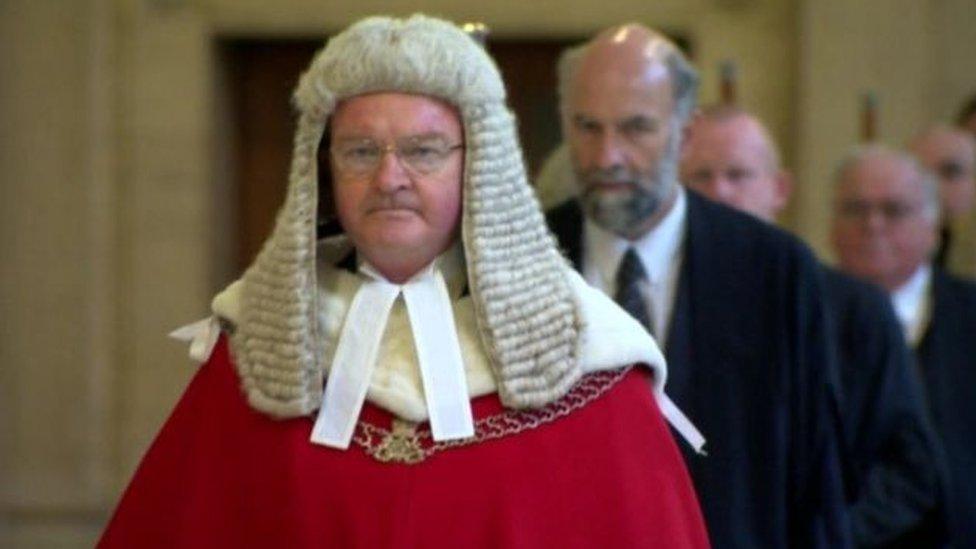Legacy cases 'should be taken away from PSNI'
- Published
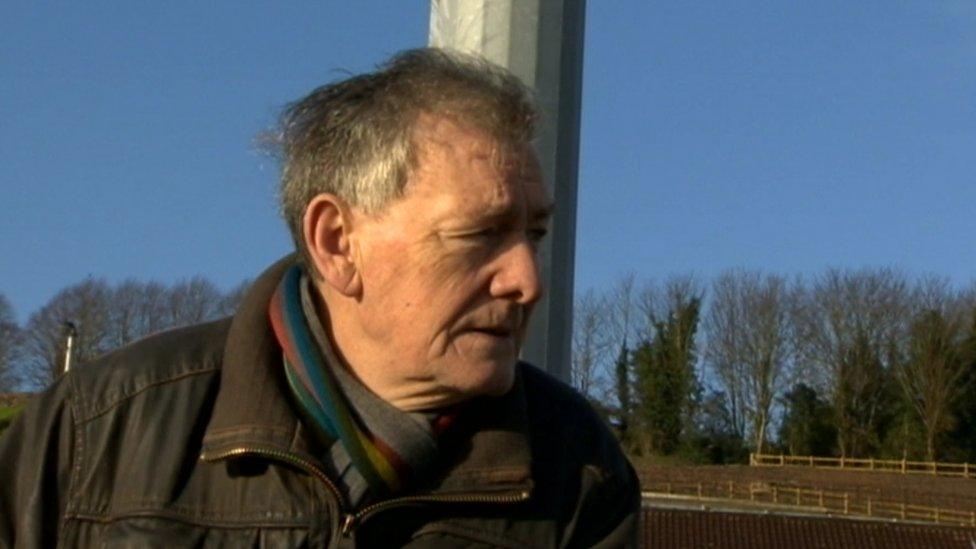
Denis Bradley said there was a consensus that the police should be removed from the legacy process
A former vice chairman of the Policing Board has said it should put pressure on the British and Irish governments to free the PSNI from involvement in Troubles-era cases.
Denis Bradley said policing in Northern Ireland was being damaged by the legacy issue.
He said there is a consensus that the police should be removed from the process.
Mr Bradley said the police did not want to be involved in it.
"Policing has been damaged as we know, as headlines will tell you over the past month - or over the past 10 years - by its involvement in trying the deal with legacy," he told BBC Radio Ulster.
"They shouldn't be there, they weren't meant to be there and I think that they should pull out from it, they should remove themselves from it."
"The governing body, the oversight body, the body responsible for making the police accountable to the public in general, should now tell the two governments that it's their responsibility to deal with the past, not the police's responsibility to deal with the past," he said.
PSNI chief constable George Hamilton has previously said that unresolved issues from the Troubles are draining police resources.
A UK Government spokesperson said: "There is broad agreement that the current system is not working well for anyone. This needs to change in order to provide better outcomes for victims and survivors of the Troubles. That is why the Government recently held a major consultation on the issue. We are analysing the responses and will respond in due course."
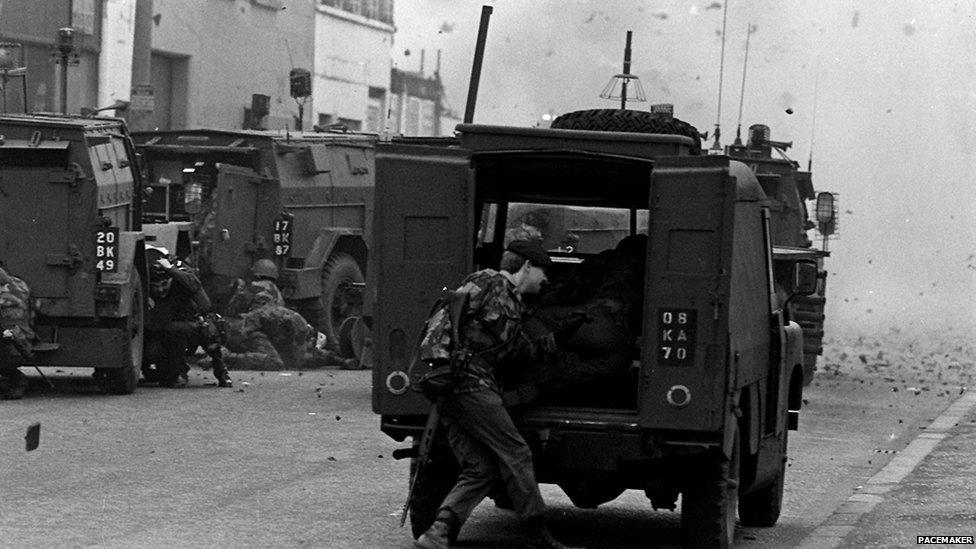
Mr Bradley added: "There's a consensus that the police should not be involved in this, the only thing that's stopping it is that nobody will take the decision to remove the police from it."
"The people who have responsibility to deal with the past and to set up the institutions and see it through are the two governments."
In a statement, the Policing Board said: "The issues arising from legacy matters continue to have a seriously detrimental impact on policing and public confidence, but most importantly on the victims and families of all those who have been affected by our troubles and are seeking information or justice.
"The board agrees that the implementation of political agreements on legacy are long overdue including the establishment of the Historical Investigations Unit.
"These are matters for the British government to progress."
'Balanced, independent institutions'
The victims commissioner, Judith Thompson, said she supported Mr Bradley's call.
"I would be absolutely clear, as has been our chief constable, that this is a burden on the PSNI which it was not formed to deal with and which it cannot deal with, either in resource terms or in terms of who they are and how they will be regarded," she said.
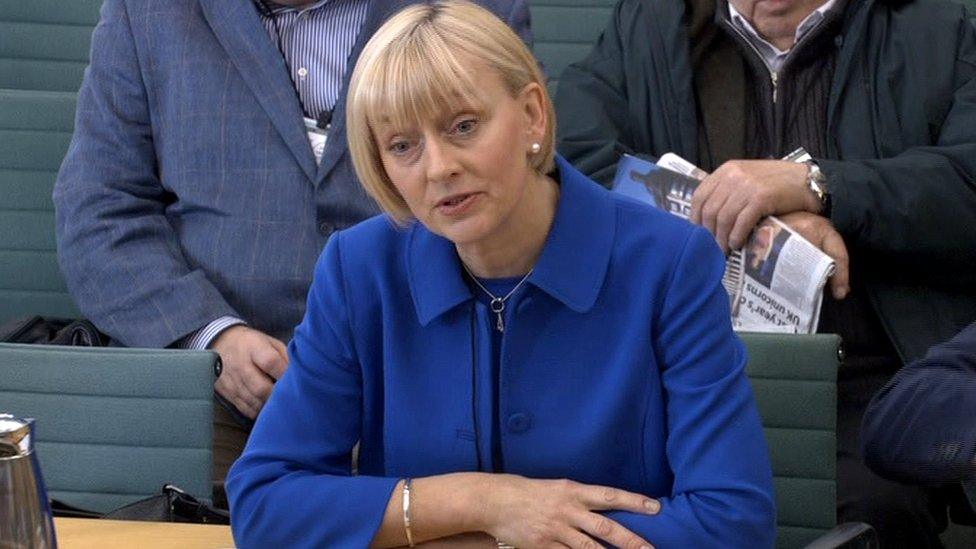
Judith Thompson said she supported Mr Bradley's call
"So, absolutely, it needs to be taken off the PSNI and I absolutely welcome the idea that a Policing Board will add its voice to that call.
"We need to move forward with proper, balanced, independent institutions."
On Thursday, the Department of Justice announced it is to set up a Legacy Inquest Unit in the Coroners Service to process Troubles inquests.
It aims to speed up legacy inquest arrangements and deal with outstanding cases.
Allocations in the new budget will cover the estimated cost of £55m over six years.
There are currently 52 legacy inquest cases relating to 93 deaths at various stages of the investigation and inquest process.
The cases relate to deaths between the 1970s and 2000s.
The new unit will operate under the remit of the Lord Chief Justice.
The six-year programme includes an initial 12-month period to recruit necessary specialist staff and set up new systems.
- Published5 September 2017
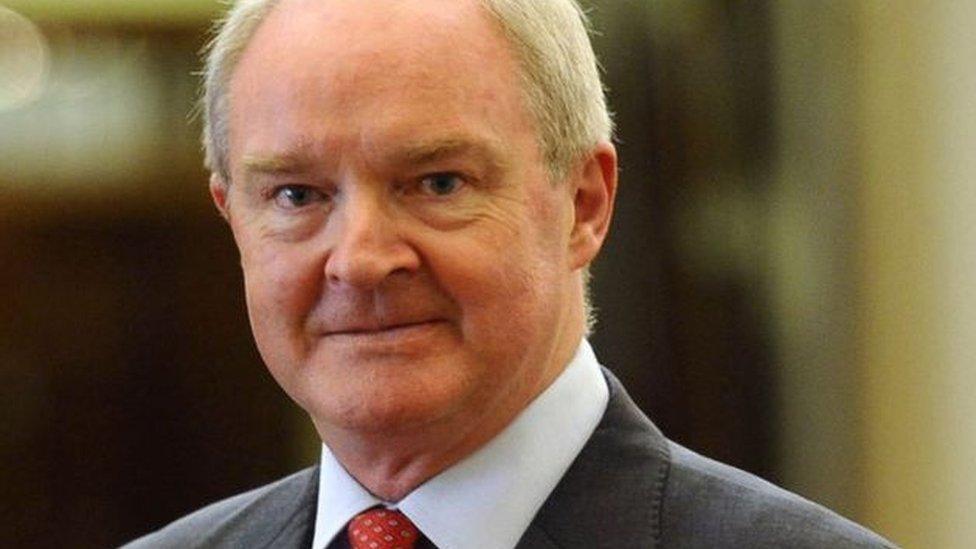
- Published12 February 2016
